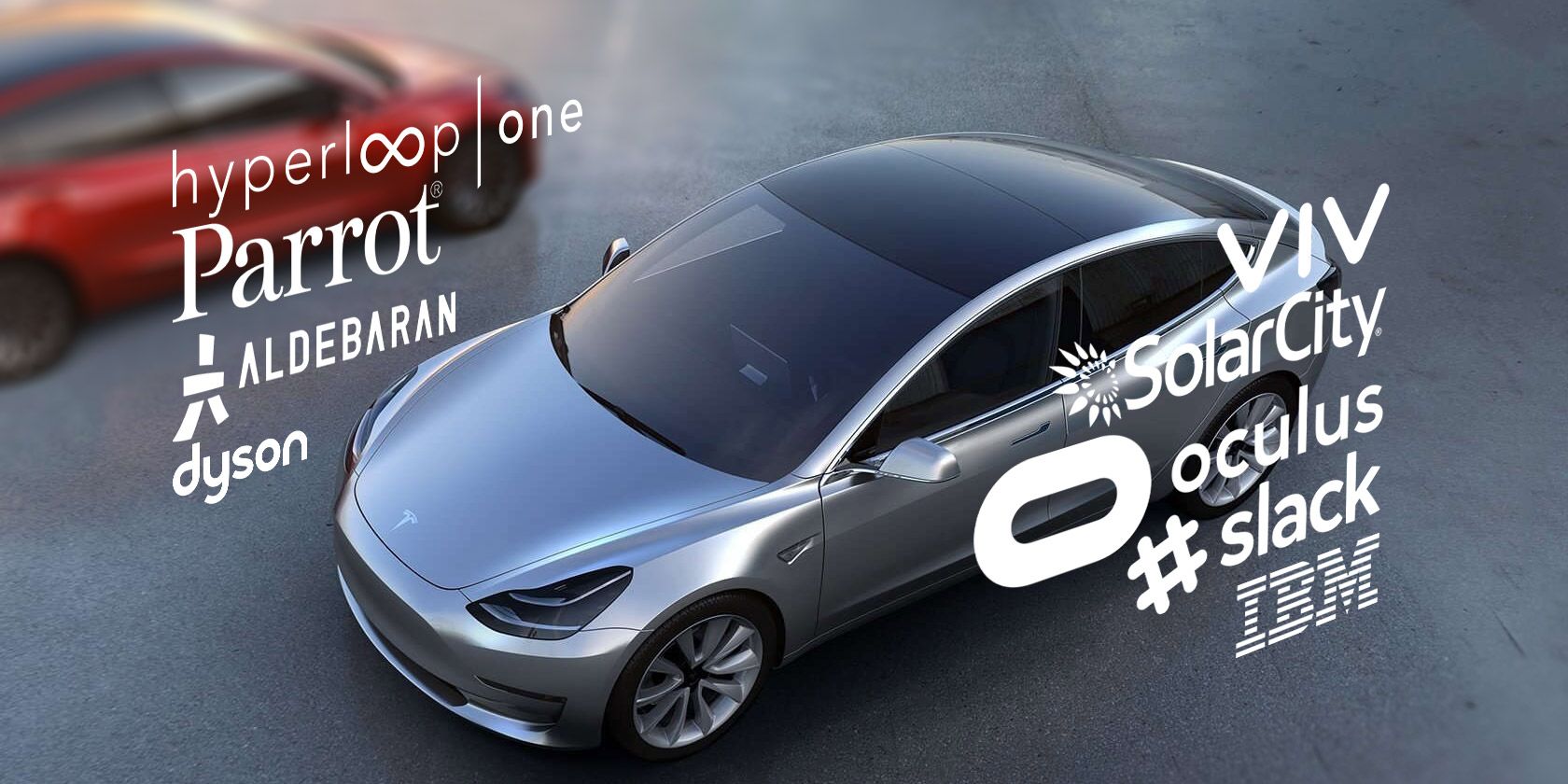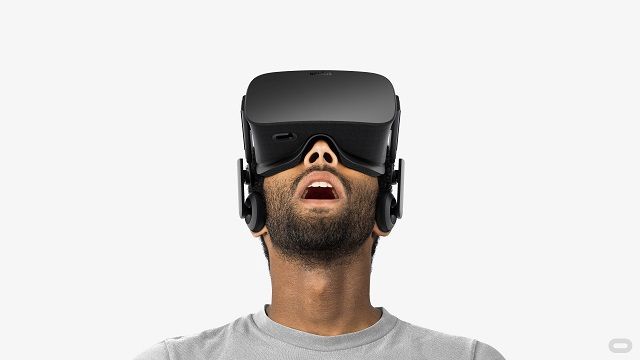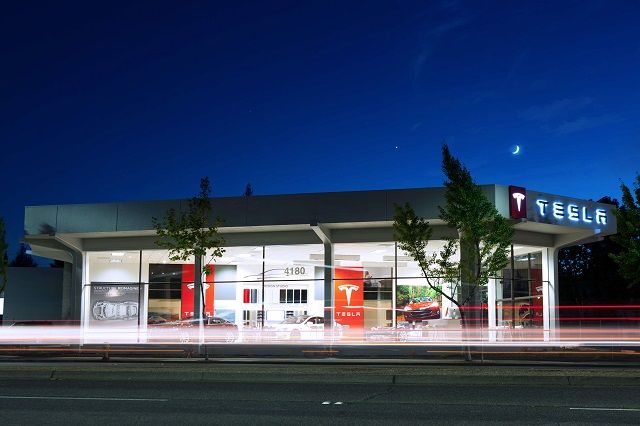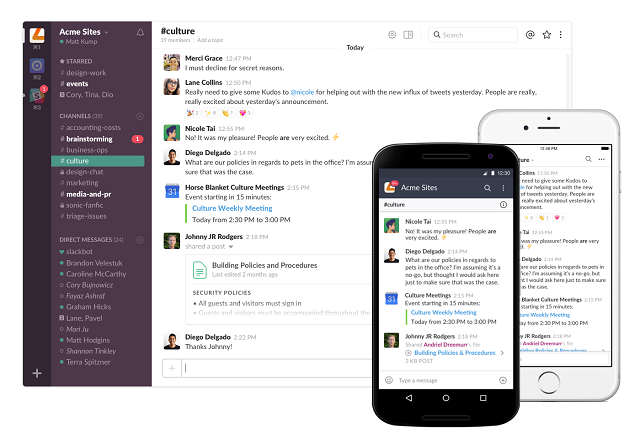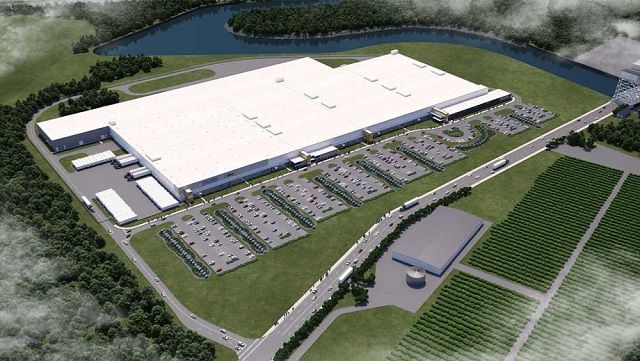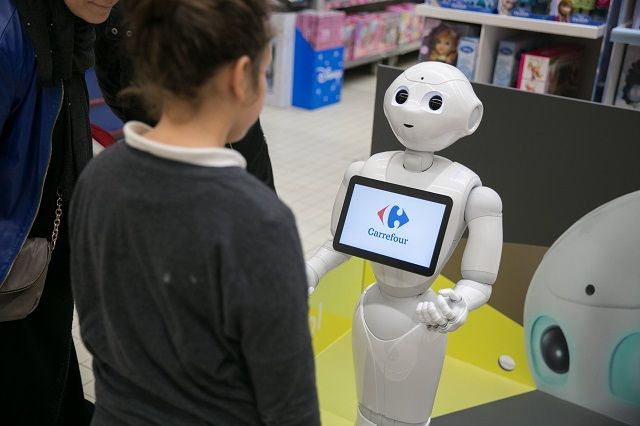We can't seem to go more than a week without yet another "revolutionary" product that's going to change the world from a tech company we've never even heard about.
Cue the huge media storm, and then... they disappear into the depths of the internet, destined to be a bullet point on one of the countless "didn't quite make it" end-of-year roundups (if they're lucky).
It doesn't always end this way though. There are some companies that are really pulling us into a new technological age. They are on the verge of something great and there is every indication that 2016 will be the year that these companies and their respective products become household names.
Without further ado, here are some noteworthy companies that you should be aware of if you aren't already.
1. Oculus VR
Oculus VR launched the insanely successful Kickstarter for the Oculus Rift. In fact the virtual reality startup was so successful that Facebook snatched them up in 2014 before the Oculus Rift had even officially launched.
Oculus Rift is one of the leading VR products with some of the most hype -- which unfortunately comes with the highest hardware price tag (upwards of $1,000). This cost does have a payoff with some impressive high-performance gaming.
When devices began slowly shipping to consumers in March, the reaction was very positive. And although further shipments have been delayed due to component shortages, the Rift will only gain momentum throughout the year as it gets in front of more eyes (ahem).
2. Tesla Motors
Electric vehicle manufacturer Tesla is tech entrepreneur Elon Musk's other major project alongside his private space exploration company Space X. Sure, there have been other electric cars in the past, but none like Tesla's.
Musk's vision for Tesla is to offer fully electric cars at an affordable price.Previous models were expensive because they were built for luxury and advanced features like receiving performance updates while you sleep. Nowadays, Tesla is all about modest tech features with practical benefits.
The latest car, the Model 3 which is expected to enter production in late 2017, is a clear indication that Tesla is doing something right. The relatively affordable $35,000 car received 325,000 reservations in the first week along following its announcement.
Some in the industry have been quick to dismiss Tesla due to their unconventional sales model and approach to vehicle manufacturing, but most consumers love what Tesla is attempting. With a potential for $14 billion in sales in 2016, this year is shaping up to be a successful one for Tesla.
3. Hyperloop One
If you'd said that Elon Musk's next ambitious project would be to create high-speed transportation pods in tubes... then you would have been right.
Elon Musk is no stranger to bringing ambitious, seemingly impossible ideas to life, and there are signs that even the concept of high speed travel in tubes may well be feasible too.
In May, the Musk-backed Hyperloop One ran some proof-of-concept tests, accelerating a sled to 116 mph in just 1.1 seconds. While there are a number of hurdles that Hyperloop One will have to overcome before this science fiction becomes reality, Musk has shown that he can overcome the odds before.
Maybe we really will be travelling on Hyperloop to LA, driving a Tesla to Space X's launchpad, and boarding a rocket to Mars in the not-so-distant future.
4. Slack
To paraphrase Mark Twain, the reports of email's death have been greatly exaggerated.
Every couple of years there is a lot of chatter about the end of email. But here we are in 2016, 25 years after the first email was sent, and we send more than ever -- with more than 200 billion emails being sent and received each day.
There may be a better alternative though, and it's name is Slack.
Slack is a messenger for the physical or virtual office which lets you stay in the conversation but without having to do damage to your workflow with constant email bombardment.
Slack's own data suggests that teams using their product see an astonishing 48.6% reduction in internal email, which is one of the reasons behind its huge $3.8 billion valuation. Without a doubt, Slack will be huge by the end of 2016.
5. Viv
More than any other technology, artificial intelligence has fallen short of the kind of expectations that HAL created for us in 2001: A Space Odyssey way back in 1968.
While we have have personal assistants like Siri, Cortana, and Google Now, none of these behave and act as naturally as we'd expect AI assistants to. With the promise of something better, the creators of Siri are back with a new and improved AI that they claim will wipe the floor with existing assistants.
It's called Viv.
Although we have only seen a brief demo of Viv at TechCrunch Disrupt, the main advantage it has over other AI assistants is its ability to seamlessly integrate with third-party services like Uber and to be able to understand conversational language.
The Viv team appears to be gearing up for a launch towards the end of the year. One thing we do know is that if the team that brought us the world's most famous AI assistant, Siri, is confident they have something special, then we should be keeping our eyes peeled for Viv's arrival.
6. IBM Quantum Cloud
Quantum computing is a complex topic that's poised to be the next big technological hurdle that we're going to cross.
Whereas standard computers encode information as 0 or 1 bits, quantum bits (or qubits) can be thought of as being both 0 and 1 at the same time. Long story short, quantum computing will be a massive breakthrough that increases the processing power available to us.
Quantum computing sounds confusing, and the mechanics of it can be, but IBM has managed to beat its next largest competitor Google to market with the first five-qubit simplified quantum computer. You can access this computer through a cloud interface, but you need to understand quantum computing to use it.
This is the first time that a quantum computer has been opened up in this way, not only letting researchers and academics get a peek inside, but it also stands as a proof of concept that cloud access to the quantum device is sustainable.
7. SolarCity
SolarCity, the largest U.S. manufacturer of solar panels, has begun construction of a new panel manufacturing plant named the SolarCity Gigafactory. SolarCity recently purchased a smaller solar panel manufacturer called Silveo and its advanced manufacturing process for solar panels.
By incorporating the sheer scale of the manufacturing plant, coupled with the efficiency improvements of Silveo's process, they are looking to manufacture one gigawatts worth of panels every year.
SolarCity believes this innovation in manufacturing could bring the cost of solar energy down to approximately $2.50 per watt, which is almost half of 2012's rate. Not only will this make investing in panels for households more attractive, but could also make clean solar energy more mainstream.
8. Aldebaran
The robotics company Aldebaran has big plans for 2016. Their flagship robot, Pepper, is a robot that can understand human emotions. It's a robot, but not in the terrifying dystopian nightmare way like Boston Dynamics.
Instead, Pepper is designed to interact with humans and to understand feelings and emotional cues. Aldebaran has plans to expand Pepper into the U.S. throughout 2016, first to businesses and then to consumers.
With 10,000 Peppers already sold, primarily in Japan, they have been used to greet customers in stores, direct passengers to the correct platform at train stations, and as domestic assistants. As their roll-out in Europe and the U.S. proceeds, you may well be greeted by Pepper at your local Walmart.
9. Parrot
In case you've missed all the news stories of drones trying to fly into the flight path or over the White House, you may not have heard that drones are a big deal in 2016.
No company is more aware of that than wireless device manufacturer Parrot, who has been developing consumer and professional drones since 2010 and consistently producing some of the best models on the market.
Its current flagship drone, the Bebop 2, weighs just over a pound with a battery life of 25 minutes flying time. The Bebop also sports a built-in camera to capture videos and images during flight. The drone and camera can be controlled with the Android or iOS companion app.
As the demand for drones continues to increase, and the price continues to fall, there will be more people who are willing to get the thrill of exploring the world from a different view -- not to mention the rapidly growing world of extreme drone racing.
10. Dyson
What started as one man's dream to build a better vacuum cleaner is rapidly developing into an innovative technology company. Most people still know Dyson for their vacuum cleaners, which work great but are hardly on the exciting side of technology.
But Dyson had some tricks up its sleeves. It first branched out into hand dryers, then fans and heaters! All while abiding by the same principle behind its bagless vacuum cleaners: efficient use of air.
To really get a sense of how Dyson plans to make a footprint in your home, however, you can take a look at the Dyson 360 Eye: the company's first robotic cleaner and a direct competitor to iRobot's Roomba.
Technological innovation can be hugely exciting to see. It can change the way we work, reduce our carbon footprint, enable higher production of clean energy, change travel for good, and even allow us to have fun and explore.
And that's only just the start. These companies are chomping on the bit of mainstream success throughout 2016, but there are many in background beginning to create fantastic, innovative products that may one day change the world again in the years to come.
Which of these do you think is going to win big in 2016? One of them? All of them? Do you have your eye on someone else? Let us know in the comments below!

